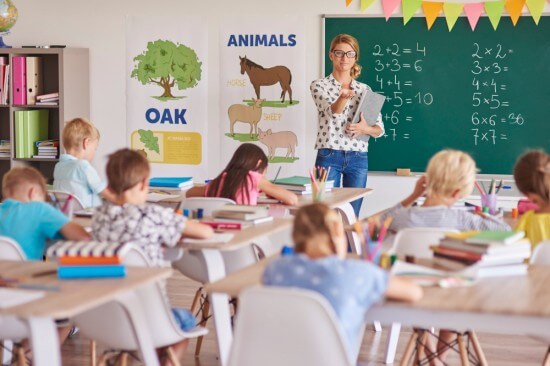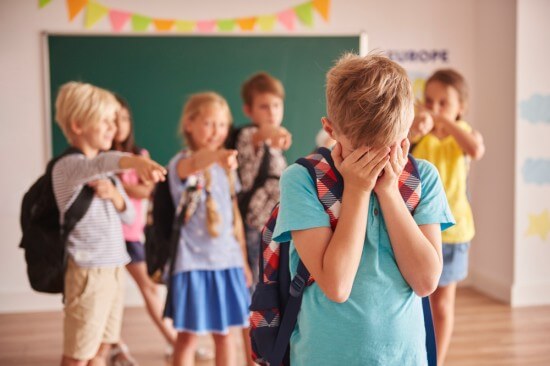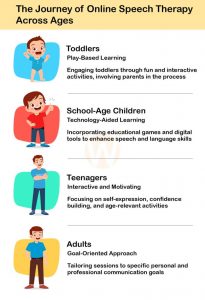Role of a teacher in a student’s underachievement
By Prapoorna M
Last Updated: November 26, 2021
Schools are the modern day temples where kids acquire knowledge to face the world. Each kid is different and each one has one’s own abilities. But why do children tend to fail in some areas especially in studies and are usually termed as underachievers? Well, in the first place, how do we see underachieving in children? Let’s take an example. A student, who does fine at home when he interacts, plays and does his daily chores, may not be able to concentrate and get nothing in school. Such a kid is usually termed as underachiever by everyone as his grades always decline. Let’s know something interesting. Underachieving students have a significant gap between their ability and what they actually produce and achieve in school.
The sources of underachievement within the school mainly include the school system, the teachers and the peers.
School system
The school system itself can contribute to underachievement. The conforming nature of the school setting, inappropriate or dull curricula, days and weeks spent on drill and practice activities for standardized tests, and inflexibility in scheduling, types of activities, or curricular content can lead to underachievement in many students.
Teachers
Some teachers have impossible standards while others may have low expectations of their students. Either way, underachievement can result. Other teachers are authoritarian and lack patience with students who ask difficult questions, do not conform, are divergent rather than convergent thinkers, etc. This type of classroom climate eventually turns the students off to school.

Peers
Peer relationships become crucial during school and college days. Positive peer interactions contribute to some students’ reversal of underachievement but negative peer attitudes can often account for underachievement.
Peer pressure
Peer pressure is very common in a typical classroom. Every student cannot have the ability to handle it. Some students who are not used to face peer pressure and bullying, especially in sports, studies and tests, just give up.
Peer acceptance and peer rejection
Children and adolescents tend to be highly peer-orientated to an extent that they avoid being successful in their studies in order to gain peer acceptance. They choose to underachieve to avoid rejection by peers. A desire to conform to group standards may make even the academic able learners to deflect attention away from their academic ability.
Peer rejection causes unhappiness, alienation, poor academic achievement and low sense of self-esteem in children. Children who are excluded by their peers have more trouble engaging in activities than children who are not excluded and they are likely to withdraw from classroom activities and suffer academically.
Fear of competition
Some students tend to develop acute fear complex to compete with relatively smarter and brighter students who are active and can score higher grades. They tend to avoid the competition with the fear of comparison and the belief that they would certainly lose.
Peer relationships
Peer relationships can even cause pressures not to achieve. Informal labeling of the children within group such as “the smart one,” “the creative one,” or “the social one,” can cause competitive pressures.
Bullying
Getting bullied by peers for their looks, complexion or height whatever, makes some students lose their enthusiasm. In order to obey the group rules, they tend to be submissive and remain silent when get bullied. This highly affects their self confidence and self esteem, which lead them to be underachievers.
Bullying has its effects in a peculiar way on different students. Some students believe that being an underachiever could satisfy the peers which could lessen bullying. Some students think that acting as an underachiever could bring them friends and stop bullying. Whereas some students take it as a challenge and try hard to be a real achiever getting high grades than the ones bullying him/her. Thus it depends upon their temperament.

Tips for parents for handling peer pressure
Here are certain tips for parents to make the children handle the peer pressure.
Encourage children
Parents must help their school going children from getting into the vicious trap of peer pressure and its dangerous consequence. Your children can balance well if constant support, encouragement and assistance is provided to them. Help your children develop their self-esteem and self-confidence which makes them believe that they are no way less than their peers. Give them a logical way of approach to each of their problem making them realize their worth.
Teach positive self-talk
Parents may also need to teach their children several important self-talk words and phrases like: “I can do it”; “I am capable”; “I have the ability” and “I can compete with others”. This helps a lot in improving their personality. Such a habit boosts their confidence in weak times. The School teachers and also the parents should be aware of the problems that the child could be facing. In order to ward off the thought of underachievement, both the parents and teachers should contribute in the encouragement of the child. Take an expert help in guiding through this process. If you need help in handling your child or adolescent, a counseling program provides it all.
Book your Free Consultation Today
Parent/Caregiver Info:
Client’s Details:
* Error Message









